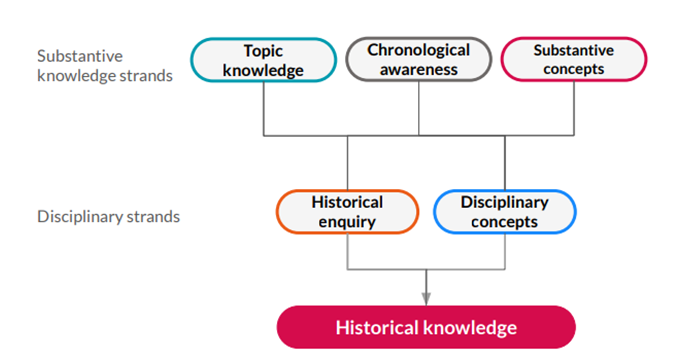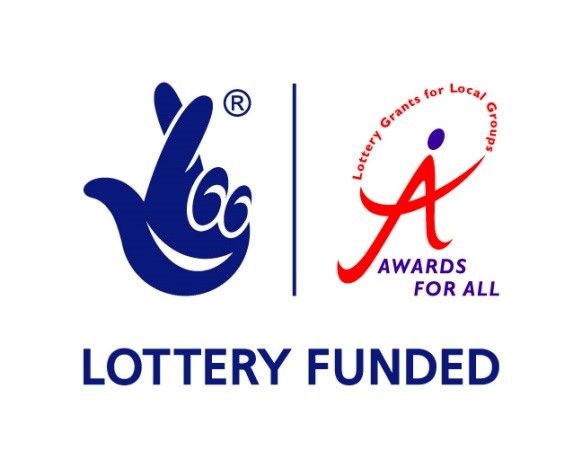History
Subject Leader - Mrs C. Somers
Intent
At Cecil Road Primary and Nursery School, with our history curriculum we aim to build an awareness of significant events and individuals in global, British and local history and recognise how things have changed over time.
Our History teaching aims to support our children in building their understanding of chronology in each year group, making connections over periods of time and developing a chronologically-secure knowledge of History. We hope to develop pupils’ understanding of how historians study the past and construct accounts and the skills to carry out their own historical enquiries.
Implementation
At Cecil Road Primary and Nursery School we use Kapow Scheme of work to support our implementation of our History curriculum. This resource ensures full coverage of the National Curriculum objectives.

The Kapow Primary scheme emphasises the importance of historical knowledge being shaped by disciplinary approaches, as shown in the diagram above. These strands are interwoven through all our History units to create engaging and enriching learning experiences which allow the children to investigate history as historians do. Each six-lesson unit has a focus on chronology to allow children to explore the place in time of the period they are studying and make comparisons in other parts of the world. Children will develop their awareness of the past in Key stage 1 and will know where people and events fit chronologically. This will support children in building a ‘mental timeline’ they can refer to throughout their learning in Key stage 2 and identifying connections, contrasts and trends over time.
Units are organised around an enquiry-based question and children are encouraged to follow the enquiry cycle (Question, Investigate, Interpret, Evaluate and conclude, Communicate) when answering historical questions.
Our children develop their understanding of the following key disciplinary concepts:
• Change and continuity.
• Cause and consequence.
• Similarities and differences.
• Historical significance.
• Historical interpretations.
• Sources of evidence.
Substantive concepts such as power, trade, invasion and settlement, are introduced in Key stage 1, clearly identified in Lower key stage 2 and revisited in Upper key stage 2 allowing knowledge of these key concepts to grow.
The Kapow scheme follows the spiral curriculum model where previous skills and knowledge are returned to and built upon.
Lessons are designed to be varied, engaging and hands-on, allowing children to experience the different aspects of an historical enquiry. In each lesson, children will participate in activities involving disciplinary and substantive concepts, developing their knowledge and understanding of Britain’s role in the past and that of the wider world. Children will develop their knowledge of concepts and chronology as well as their in-depth knowledge of the context being studied.
Impact
Our children will leave Cecil Road Primary and Nursery School equipped with a range of skills to enable them to succeed in their secondary education. They will be enquiring learners who ask questions and can make suggestions about where to find the evidence to answer the question. They will be critical and analytical thinkers who are able to make informed and balanced judgements based on their knowledge of the past.









